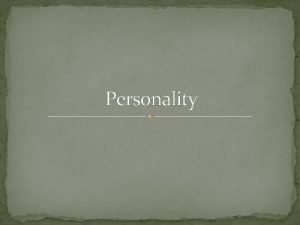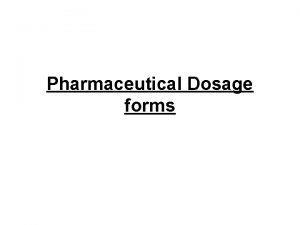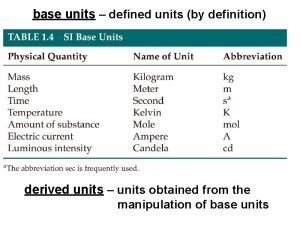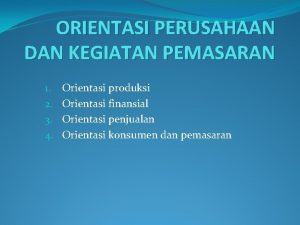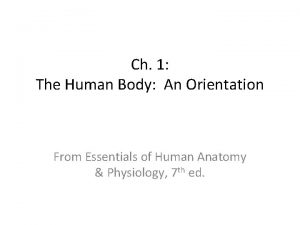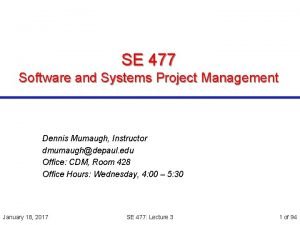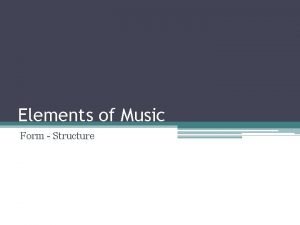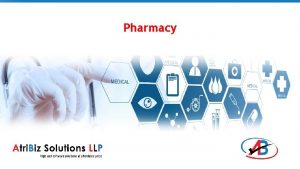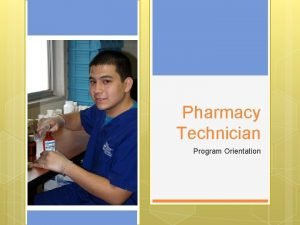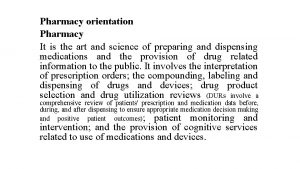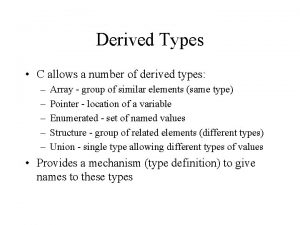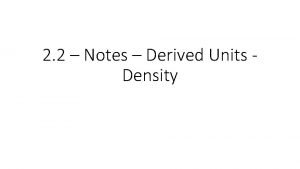Orientation Dr Definition of Pharmacy Pharmacy Derived form














- Slides: 14

Orientation Dr.

Definition of Pharmacy • Pharmacy: – Derived form Greek word "pharmakon" means medicine or drug • Pharmacy: – Means the art and science of preparing and dispensing medications and the provision of drug – related information to the public.

Pharmacy involves 1. 2. 3. 4. 5. Interpretation of prescription orders Compounding Labeling Dispensing of drug and devices Patient monitoring

Drugs: • Is the material that has a pharmacological effect. This material may be: • Natural in origin (plant – animal – mineral) • Synthetic (e. g. aspirin)

Drug Classification: • Prescribed drug: the drug dispensed only by prescription • Non prescribed drug: OTC 'Over The Counter' drug that can be dispensed without prescription.

Name of the drug: • Chemical name: indicating its chemical structure e. g. (N – para – aminophenol) • Generic name: the name given to the compound during early investigation • Official name: its name in pharmacopeia e. g. B. P. 1998: Paracetamol and in U. S. P XXII: Acetaminophen • Brand name: its trade name in the market. Abimol (Glaxo) , Pyral (Kahira) , Cetal (Epico)

Scope of Pharmacy • Education • Career

Education • All faculties of pharmacy in Egypt adopt 5 years program to get B. Sc. pharm • The courses of pharmacy education: 1. Pharmaceutics, biopharmaceutics and clinical pharmacy 2. Pharmacognosy 3. Organic chemistry 4. Analytical chemistry 5. Pharmaceutical chemistry 6. Biochemistry 7. Microbiology and public health 8. Pharmacology & toxicology • Complementary studies include: Mathematics, management, pharmacy law

Types of education necessary for creating a pharmacist: • Basic science (Chemistry, Biology, Physics) • Technical Skills • Drug information and scientific knowledge • Economic knowledge • Psychological and sociological understanding

Aims of Modern pharmaceutical education • • Provide scientific background Provide professional skills and knowledge Provide business training Provide broad general education

Under-graduated program and curriculums 1. Pharmaceutics: formulation of drug in dosage form 2. Pharmacognosy: pharmacognosy is the science deals with cultivation, collection transportation, quality control and preservation of plants It includes phytochemistry a science deals with studying active ingredients of the plant and its clinical effectiveness

Under-graduated program and curriculums Cont… 3. 4. 5. 6. Organic chemistry: is the science deals with the chemical structure and nomenclature of chemical compounds Analytical chemistry: the science deals with the analysis of analytical regents, raw materials and drug products Pharmaceutical chemistry: is the science deals with the analysis and synthesis of raw materials, analytical reagents and final pruduct Biochemistry: biochemistry is the science deals with the chemistry and the biological importance of chemical agents found in diet and the body

Under-graduated program and curriculums Cont… 7. 8. 9. Microbiology and public health: Microbiology: is the science deals with microscopic or ultramicroscopic structure, action of viable microorganisms as bacteria, virus, fungi and parasites, also deals with infections, sterilization, antimicrobials and immunology Public health: is the science deals with all measures needed to protect the health of community Pharmacology and Toxicology: Pharmacology: is the science deals with properties and effects of the drugs, interaction between the drug and the living system. Toxicology: is the science deals with poisoning effect of drugs and other agents Clinical pharmacy

Post-graduated Education • Diploma degree in: Pharmaceutics department: 1 - Industrial pharmacy 2 - Hospital pharmacy 3 - Clinical Pharmacy 4 - Quality Control 5 - Cosmetics Pharmacognosy department: 6 - Medicinal plants Pharmacology department: 7 - Pharmacology 8 - Biochemistry from Biochemistry department 9 - Microbiology and public health from Microbiology department 10 - Organic synthesis from Organic and pharmaceutical chemistry department • Master degree: e. g. M. D. pharmaceutical science • Ph. D degree: doctor of philosophy in pharmaceutical science
 Polycentric example company
Polycentric example company Derived form
Derived form Dosage form definition in pharmacy
Dosage form definition in pharmacy Present continuous negative and interrogative
Present continuous negative and interrogative Position fundamental
Position fundamental Stoop standing position
Stoop standing position Derived unit definition
Derived unit definition Social and environmental responsibility
Social and environmental responsibility Campaign definition in life orientation
Campaign definition in life orientation Accountability definition in life orientation
Accountability definition in life orientation Sexual orientation ap psychology
Sexual orientation ap psychology Orientation definition math
Orientation definition math Orientasi produk
Orientasi produk Major body cavities
Major body cavities Project deliverables examples
Project deliverables examples

